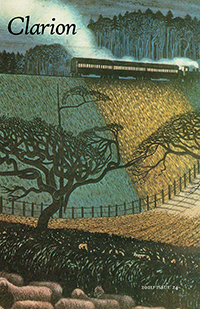| Observations on magazine fiction
by Colin Fleming (from the author's website in August 2010)
A few points gleaned from a reading of twenty-five literary magazine stories, chosen at random, a process then repeated several times, resulting in much the same conclusions:
- Not all stories have to be set on colleges, or about college, or have anything to do with college.
- Not all stories have to be safe. No good one should be. A good story ought to have balls. As big as grapefruits. There is risk in reading a good story-your gut may churn, your once happy day may be torn asunder. You might question who you are. You might realize that part of who you are is not who you thought you were or even who you wished to be. And you may be met with affirmation too. This is what art does. A good story can make it hard to go out on the town that night. Or maybe it will make you feel like dancing. It should not make you feel in a manner which is common to you.
- The narrator narrating a story need not be a stand in for the person whose name appears at the top of the first page. Stories can be made up.
- Not all stories need to feature the word "lover" or the phrase "made love."
- Not all stories need to be about professors having affairs. Or people with MFAs.
- Not all stories need to feature characters who speak in the same four syllable words as the narrator, even when they are immigrants for whom English is a second language. Or the local greengrocer who is intended as a "regular" greengrocer, and not a man of powerful elocution.
- Not all stories need to start at the beginning. They can start in medias res. They can start in medias res of in medias res.
- Not all stories require each and every sentence to begin subject-verb, subject-verb, subject-verb.
- (a.) It is interesting how culturally transgressive some writers think stories are when they simply change the word "beer" to "cerveza."
(b.) It is interesting how many editors fall for this and tout it as multiculturalism of the most rarefied sort. Despite the observations noted in points 1 through 8 holding true.
- Not all stories have to be the same.
Back to our full list of Guides to Literary Correctness |

